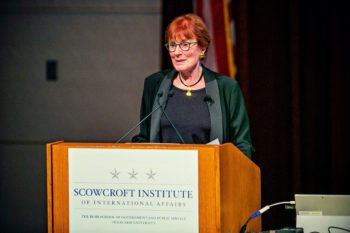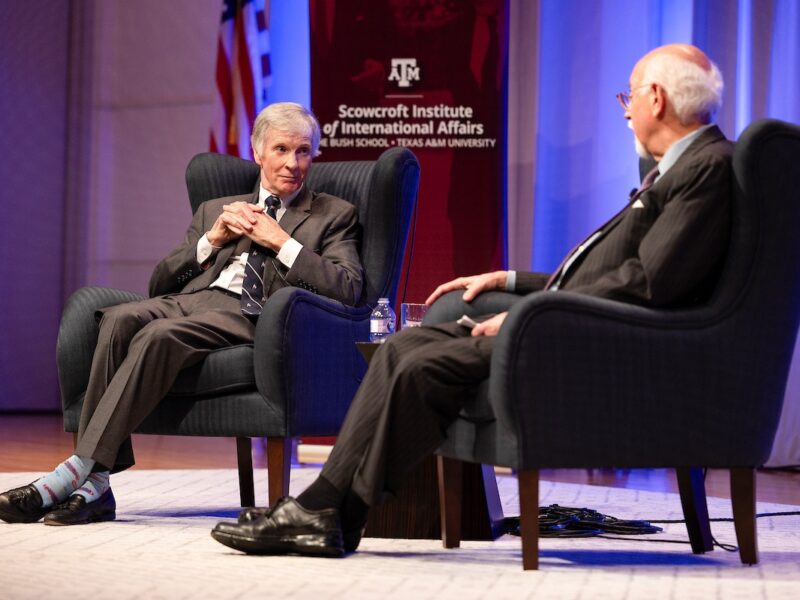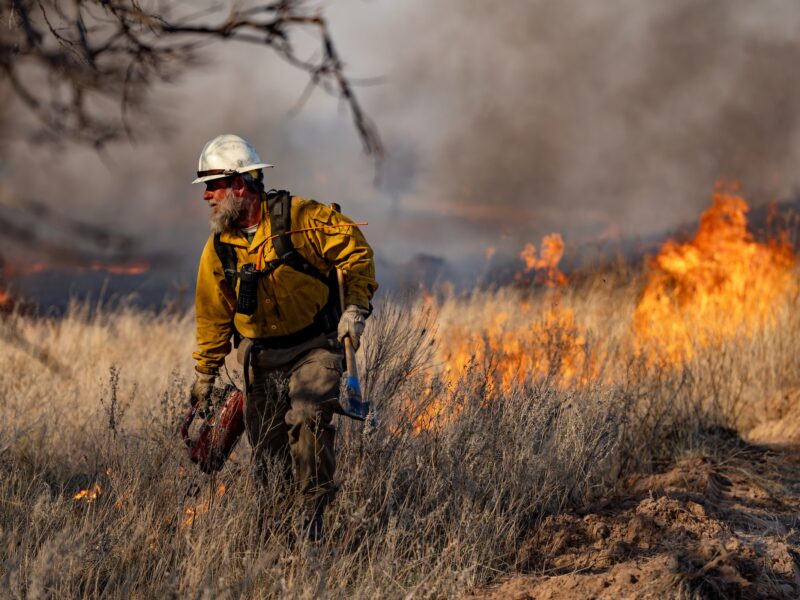Winston Churchill’s Granddaughter Discusses The Power Of Words

Former British Prime Minister Winston Churchill was a master of words, his granddaughter Celia Sandys said Monday on the Texas A&M University campus. As a politician, she said, Churchill used words to inspire and lead the world in some of the most famous speeches ever made.
Sandys shared insights into her grandfather’s leadership style and influence during her lecture at the Annenberg Presidential Conference Center hosted by the Scowcroft Institute of International Affairs at the Bush School of Government and Public Service. Sandys said Churchill’s speeches during World War II brought together families on both sides of the Atlantic Ocean who would sit by the fire or around the kitchen table taking comfort and inspiration from his words.
“So many people have told me how his speeches gave them hope when they were in despair,” Sandys said. “Wherever they listened, here in the United States, in London during the Blitz, or in occupied Europe – where possessing a radio, let alone listening to it, carried the risk of death – everyone remembers those moments. My grandfather knew that the only way that he could inspire people was to make them believe that he believed he could win victory.”
As prime minister of the United Kingdom from 1940 to 1945, Churchill led Britain to the West’s unified victory in World War II. As time passed following his death in 1965, Sandys said that Churchill became a historical figure who fewer people could remember. The Sept. 11 terrorist attacks brought her grandfather back to the international stage when leaders including President George W. Bush and British Prime Minister Tony Blair called on the memory of Churchill for inspiration in their own speeches. Sandys said this confirmed that his example of leadership was as relevant in 2001 as it was in 1940.
The best leaders are those who are able to not only deal with change, but anticipate it, Sandys said. They can also make sense of what’s happening and explain it to others while offering a vision of how to move forward, a quality she said her grandfather exemplified in the 1930s and 1940s.
“He was not only able to lead his country in its darkest hour, he was also the most articulate interpreter of what was happening and what was likely to happen,” Sandys said. “He saw foremost what Hitler represented and what he would do.”
Sandys said Churchill also saw more clearly than most what the post-war period would look like. His famous Iron Curtain speech, delivered in 1946 in Fulton, Missouri, was criticized at the time but proved to be prescient.
“From Stettin in the Baltic to Trieste in the Adriatic, an iron curtain has descended across the continent,” began one of the most famous speeches of the Cold War period. It epitomized Churchill’s courage and vision, Sandys said.
“He knew that in the aftermath of war, his words would not be what the leaders of the Western world wished to hear, but he felt that they needed to hear them, and hear them clearly and unequivocally,” Sandys said.
Sandys played clips from this and other speeches during her lecture, which was followed by a discussion with Andrew Natsios, director of the Scowcroft Institute and executive professor at the Bush School. When asked by Natsios whether Churchill would have backed Brexit, Sandys said her grandfather would have avoided it, adding that his words have been cited by leaders on both sides of the issue.
On what she considers her grandfather’s greatest career accomplishment, Sandys pointed to his leadership in keeping Britain in World War II until the United States joined. She said his career mistakes included India – in 1943 the country experienced a widespread famine that killed millions, and Churchill’s inaction has been the subject of criticism.
Sandys is the daughter of Churchill’s eldest child, Diana, and Cabinet Minister Duncan Sandys. She is an internationally acclaimed author, journalist, television presenter and speaker who has published several books on Churchill’s life.
Media contact: Caitlin Clark, 979-458-8412, caitlinclark@tamu.edu.





